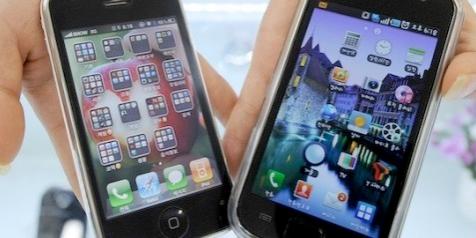 What’s going on in all these wireless patent battles? And why?
What’s going on in all these wireless patent battles? And why?
The first thing to understand is that implementing most (all?) wireless standards involves infringing on certain “essential patents.” The word “essential” means that if you meet the standard, you infringe the patent, there is no way around it. You can’t build a CDMA phone without infringing patents from Qualcomm; you can’t build a GSM phone without infringing patents from Motorola, Philips and others.
The second thing to understand is that typically, if you are a patent holder, you want to license the last person in the chain. There are two reasons for this. Firstly, the further down the value chain, the higher the price, and so the easier to extract any given level of license fee. It is easier to get a phone manufacturer to pay you a dollar than a chip manufacturer, for example. The second reason is that often the patent is only infringed in the final stage of the product chain. Any patent that claims to cover phones that do something special is not infringed by chips, software or IP that might go into the phone to make that something special happen. Plus you can’t really embargo anything other than the final product if it is all assembled offshore.
Apple, presumably in a calculated way, didn’t worry about licensing anyone else’s patents. They pretty much invented what we think of as the smartphone and it is hard to build one without infringing lots of Apple patents on touch-screens, gestures, mobile operating systems, app stores and so on. So they figured that they had a good arsenal for cross-licensing to address their lack of patents on basic wireless technology.
Google seems to have been blindsided by this. They created Android, which in and of itself doesn’t infringe much. They didn’t patent much on their own and probably didn’t have any intention of suing anyone. “Don’t even be as evil as suing someone.” But when Android is put into a smartphone or tablet then that end product infringes lots of patents, most notably Apple’s. Google tried to fix this, first by offering $3.14159B for Nortel’s patents (which they lost) and then by buying Motorola’s mobile phone division for around four times as much (well, they got a mobile phone division too, which might turn out to be important).
Microsoft also had a lot of patents. In fact it has been so unsuccessful so far in its mobile strategy that it reportedly makes more money licensing Android phone manufacturers (for patent licenses) than it does licensing Window7 phone manufacturers (for software licenses, presumably including the patent licenses since suing your customers tends to be bad for business).
Also, in here somewhere, is Oracle, which with its acquisition of Sun owns any patents on Java. And Android’s app development environment is Java (Apple’s is Objective-C, which they acquired with Next).
 The most schizophrenic relationship is Apple and Samsung. Samsung build the A4 and A5 chips that are in the current iPhone and iPad, it supplies some of the DRAM and some of the flash. I wouldn’t be surprised if Apple is their largest customer. But they are suing each other mainly over Samsung’s iPhone lookalikes Galaxy S and Galaxy SII and iPad lookalike Galaxy Tab. Samsung announced that they have already shipped over 10M Galaxy SIIs, which is an impressively large number. Samsung is probably the biggest threat (as a single manufacturer) to Apple, already #2 in profitability and, I think, #2 in unit volume behind Nokia.
The most schizophrenic relationship is Apple and Samsung. Samsung build the A4 and A5 chips that are in the current iPhone and iPad, it supplies some of the DRAM and some of the flash. I wouldn’t be surprised if Apple is their largest customer. But they are suing each other mainly over Samsung’s iPhone lookalikes Galaxy S and Galaxy SII and iPad lookalike Galaxy Tab. Samsung announced that they have already shipped over 10M Galaxy SIIs, which is an impressively large number. Samsung is probably the biggest threat (as a single manufacturer) to Apple, already #2 in profitability and, I think, #2 in unit volume behind Nokia.
Apple has also been suing some of the Android manufacturers but they are countering since Google is now licensing some of the Motorola patents to them (for free, I assume). Remember, Apple can’t sue Google directly since an OS doesn’t infringe a phone patent, only phones can do that, and so Google can’t counter Apple directly, it has to do it through its licensees.
Meanwhile, Nokia, which must have an enormous patent portfolio, is also suing Apple, although Apple has already settled (surrendered) some of this by paying a license fee. If Nokia is to be successful with its strategy du jour of using Microsoft for its smartphone strategy then it will need to be able to defend itself against Apple. It also needs to get moving, since the latest Mango release of Microsoft’s WP7 is already coming to market through HTC and Fujitsu. If all Nokia has is a late to market me-too WP7 implementation they are doomed. Well, I think they are doomed anyway although it may depend on how much the carriers want to keep Nokia and/or Microsoft WP7 alive to counter Android and Apple.
Oh, and Amazon’s Fire tablet comes to market tomorrow, supposedly. Don’t be surprised if Apple sues them. Amazon is probably the biggest threat to Apple leveraging content rather than basic tablet technology.
What will happen in the end? Probably not much. Nobody has a clue how much anyone infringes anyone else’s patents and nobody is going to put much effort into finding out. I expect that everyone will cross-license, with Apple and anyone else who lacks fundamental patents (the ones that are used in non-smart phones) having to make some balancing payments to cover the last couple of decades of investment that they are riding on, and anyone who hasn’t got their own smartphone patents having to make balancing payments to Apple who pretty much invented them as we now think of them.









A Century of Miracles: From the FET’s Inception to the Horizons Ahead